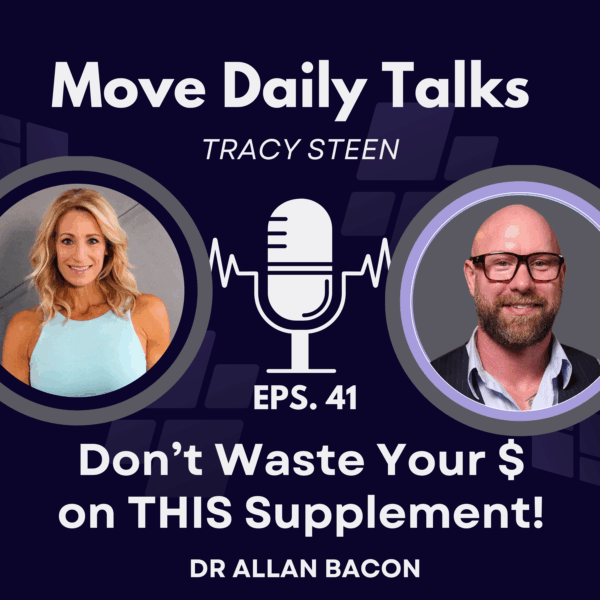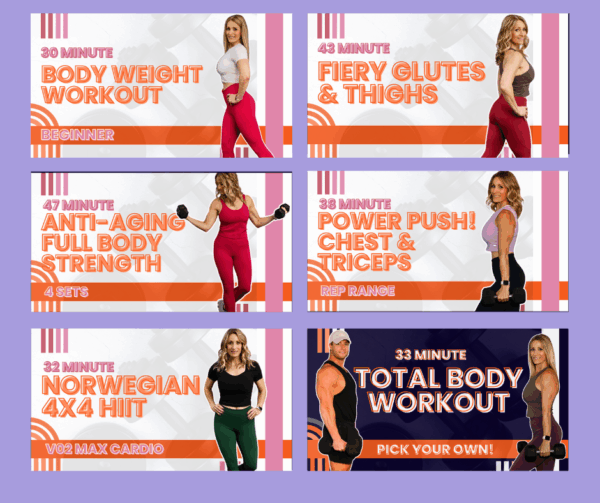The Intermittent Fasting Misdirection
Intermittent fasting (IF) is a popular method of eating, which has really grown in popularity over recent years. When a way of eating becomes popular, confusion is often the result. With so many “experts” and influencers attempting to put their own spin on it, often with the view to selling their own book or creating traction for their following, it can be hard to understand clearly. This can lead to you interpreting it in a way where it doesn’t work successfully. Every approach has downsides but they are often ignored for the sake of making something sound like the “silver bullet”.
At Move Daily we are passionate about cutting through the noise for our community. In this week’s newsletter we first examine the pitfalls of IF, and then how you can shift your approach to make it not only more successful, but safer and more sustainable as a way of life.
Why Intermittent Fasting might be backfiring
- Cortisol sensitivity increases with age: Long fasting windows may spike cortisol, especially in the morning, which elevates blood sugar and promotes fat storage—particularly around the belly. Studies have shown that during fasting, cortisol levels may increase, with peak times shifting depending on the duration and timing of food intake.
- Perimenopause and menopause already disrupt hormone balance: Add stress from fasting and you get a volatile mix that may worsen sleep, mood, and cravings.
- Under-eating becomes more likely: Skipping meals may lead to consistently low calorie intake, which downregulates metabolism and accelerates muscle loss.
- Muscle preservation becomes harder: As estrogen declines, the muscle-protective signaling it supports also diminishes. Without sufficient protein intake—ideally 0.8 to 1.0 grams per pound of ideal body weight to stimulate muscle protein synthesis—you risk muscle loss (sarcopenia). This can be especially challenging for those practicing intermittent fasting, as the shortened eating window makes it harder to consume enough protein throughout the day
- Sleep gets wrecked: Poorly timed fasting (e.g., early dinners and long overnight fasts) can disrupt blood sugar regulation and cause sleep fragmentation, hot flashes, or early waking.
- Rebound eating patterns: Many women end up over-consuming hyper-palatable or high-carb foods later in the day, driven by suppressed hunger hormones in the morning and a surge in the evening.
- Thyroid function may downregulate: Chronic fasting and low carb intake can nudge thyroid hormones into suboptimal ranges, compounding fatigue, brain fog, and difficulty losing fat.
Changes you can implement to make your approach more successful:
- Shorten the fasting window: A gentle 12:12 or 14:10 (if well tolerated) gives the body a break without spiking stress hormones or wrecking metabolism.
- Prioritize breakfast within 1–2 hours of waking: Especially one that includes 25–35g protein to stabilize blood sugar, lower cortisol, and kickstart muscle protein synthesis.
- Eat to fuel, not restrict: Focus on nutrient timing—anchor meals around movement and recovery rather than skipping meals to save calories.
- Strength train at least 2–3x per week: Resistance training reduces insulin resistance, preserves lean mass, and buffers the stress response that fasting can trigger.
- Track patterns, not just results: Pay attention to how fasting affects sleep, mood, cravings, energy, and cycle symptoms—not just the scale.
- Cycle fasting: Use it occasionally (e.g., 1–2 days per week), rather than daily. This allows your body to reset without chronically elevating stress.
- Focus on metabolic nourishment: Instead of chasing fat loss through restriction, support your metabolism with adequate protein, fibre, healthy fats, and slow carbs.
Meal Prep to Support IF
One of the key findings with utilizing IF is that temptation to become overly hungry and then reach for quick and easy, often highly processed foods to satiate that need. Being on point with your meal prep and making sure you have accessible, healthy and delicious food can really help. Tracy’s Mediterranean bean and chicken salad meal prep bowls are the perfect antidote to this issue. Packed with variety, color and easy cupboard ingredients, why not make some this weekend?
Join Tracy and Guests on Move Daily Talks
Every Saturday Tracy is joined by a special guest on her hugely successful, and informative podcast, Move Daily Talks. Here is the latest release for you to listen to, learn from and enjoy. Or watch it on YouTube.
This Weeks Workouts!
Here is your handy reminder of the current week’s workouts. All of the workouts are available either free via the YouTube channel, or are the Members Exclusive workouts, which you can access if you sign up to our Membership. Don’t forget that the workouts are released across the week and so make sure you are signed up for YouTube notifications by subscribing to the channel.


